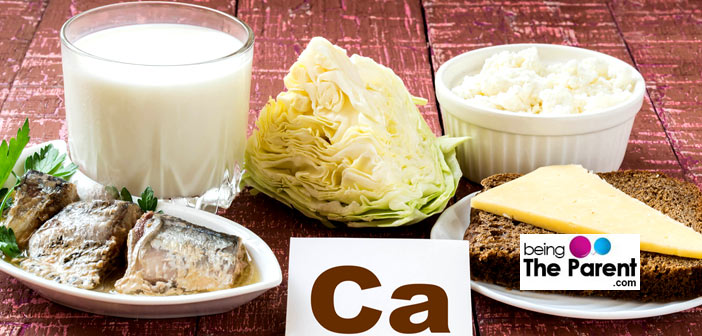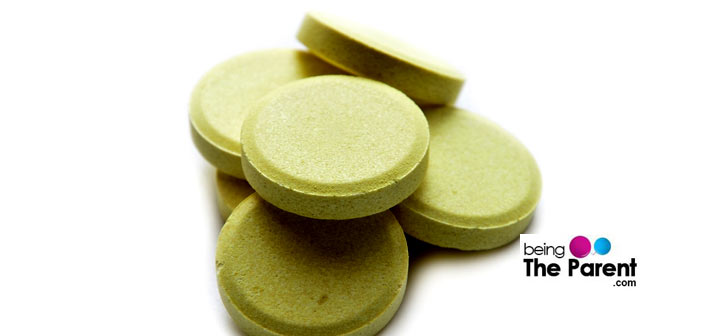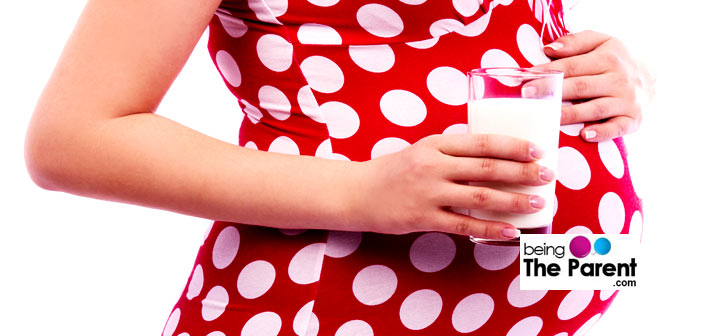
We usually correlate calcium with bones and teeth. But it is important to know that such vitamins and minerals do not have restricted or pin-point functions in the body. Calcium is essential for healthy bones and teeth, but it also plays an important role in contraction of muscles, hormone secretions, nerve conduction, maintaining normal heart rate and blood clotting. Therefore, calcium is necessary for proper day-to-day functioning.
Why Do I Need Calcium During Pregnancy?
As a woman, piled up day to day physical tasks and not a very balanced diet, you are more prone to develop arthritis and osteoporosis. During pregnancy your baby will be requiring the calcium to build his bones and skeleton. If you are deficient in calcium, then your bones and teeth – which store calcium in the body will be eroded to supply the calcium to the baby. This will render you with brittle bones and teeth and affect your own health later.
How Much Calcium Do I Need During Pregnancy?
Between the ages of 19 and 50, a woman’s need for calcium is 1,000 milligrams per day. This calcium intake is further increased by 250-300 mg during the last trimester of pregnancy. This calcium intake must also be maintained even after pregnancy, i.e. during lactation to keep your bones healthy and avoid the risk of osteoporosis in older age.
Safe Food Sources Of Calcium
The most common and rich source of calcium is milk and dairy products. Although most of us detest either taste or smell of milk, it can be consumed in various forms – much to your liking. Below is a list of food items, which should be increased in the diet during pregnancy to naturally increase the calcium intake:
-
- Milk: Do not shy away from buying flavored milks, they are still rich in calcium. You may want to check the added sugar value though!
- Soy milk: They are perfect for those who are lactose intolerant. Apart from calcium, they are rich source of antioxidants
- Cereals: Comes in various forms, choose the one you like. Better pick one with added calcium

- Yogurt: You can prepare it at home or purchase nicely flavored, loaded with chunks of fruits!
- Cheese: Pamper yourself with servings of cheddar, mozzarella, parmesan. Need not mention from where to buy and how to eat. Simply put a slice of cheese on toasted bread and you are ready!
- Cottage cheese or paneer: Easily available and used frequently in meals
- Almonds: Nuts are a healthy source of omega 3 fatty acids too
- Eggs: They are universal, wholesome food
- Green leafy vegetables such as spinach and broccoli
- Canned salmon: Now you can rely on fishes to supply you with calcium!
Calcium Deficiency In Pregnancy
Maternal calcium deficiency can result in complications for the developing baby. “The Journal of Nutrition”, published a study on maternal calcium deficiency and its effect on baby in 2010 concluding that maternal calcium deficiency can play a role in cardiovascular development in the fetus and increases the risk of high blood pressure in the newborn. This study also linked maternal calcium deficiency to a risk of increased body fat percentage, elevated triglycerides and insulin resistance in children. Bone mineral density of a baby can also get affected by low maternal calcium. Not only this, calcium deficiency can make you have a prolonged labor and delayed recovery.
To combat the deficiency, calcium supplements are advised to pregnant woman.
Signs And Symptoms Of Calcium Deficiency During Pregnancy
As is normally said, brittle nails, aching muscles, weak bones, muscle cramps, dry skin are all signs of calcium deficiency. If you are pregnant and feel that your body is low on calcium, seek doctor’s advice. Never administer calcium supplements on your own, as excess calcium can also cause problems to your baby and yourself.
Should I Take Calcium Supplements In Pregnancy?
One liter milk contains approximately 1200 mg calcium. If you are not a fan of milk or are lactose intolerant, then calcium supplement is what you need. Calcium supplements are considered safe and many are available in the market without prescription. Some are even designed specifically for women. The dose of your calcium supplement will largely depend on your actual calcium intake in the diet. For instance, if you happen to drink 1-2 glasses of milk every day, then chances are that your obstetrician may advise a calcium supplement of only 300 mg each day. If not, then higher doses may be prescribed.
It’s never recommended to take medicines which worked for your friends or relatives. Your body constitution is different and therefore to avoid any risks during pregnancy, visit the obstetrician and discuss about the mineral supplements.

Excess Calcium In Pregnancy
If you have been taking too much calcium, you could be at a risk of causing long term effects on your body as well as on the baby. The upper limit of calcium during pregnancy is 3,000 mg for pregnant women aged 18 and below and 2,500 mg for those 19 and above. If you are absorbing more than this amount of calcium, the body will disrupt the absorption of other essential minerals and vitamins, placing you at a risk of developing kidney stones. The fetus could also be affected due to hypercalcemia (excess calcium).
Points To Note When Taking Calcium During Pregnancy
- It must be noted that calcium absorption is affected by caffeine. So try to avoid filling calcium requirements through coffee and tea
- Calcium may interfere with the absorption of iron and folic acid. This is particularly mentioned here, since iron and folic acid supplements are very frequently advised during pregnancy. What you can do is, plan out your medicine intake throughout the day such that there is reasonable gap between calcium supplements and other supplements
- Some calcium supplements contain lead, so read the ingredients carefully before laying your hands on them!

Oh and for your information, drinking water, both tap water and bottled water contains calcium. Yet another reason to sip more water! To secure the future health of you and your baby, do not underestimate the importance of vitamins and minerals. Eat healthy, live healthy!
FAQ’s
1. How Much Calcium do I Need When Pregnant?
You will need more than usual. A good 1,000 mg of calcium is required a day. This helps in baby’s growth.
2. How can I Increase my Calcium Intake?
Doctors will prescribe prenatal vitamins that include calcium. Increase your dairy intake. You can even get calcium from green leafy vegetables and eggs.
3. How Much Calcium Does the Fetus Need?
A fetus needs calcium for more than just bones. It needs it for a healthy heart and muscles. Ensure you consume at least 1,000 mg of calcium a day.
4. Which Trimester Should Calcium Intake be More in?
Third trimester. This is when the baby’s growth peaks. The skeletal development peaks at this stage.
